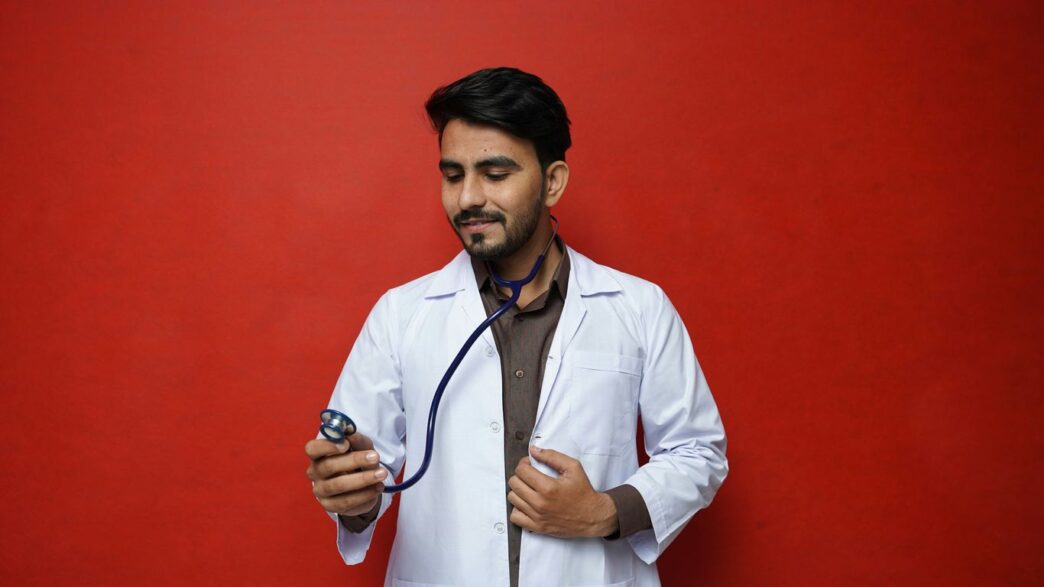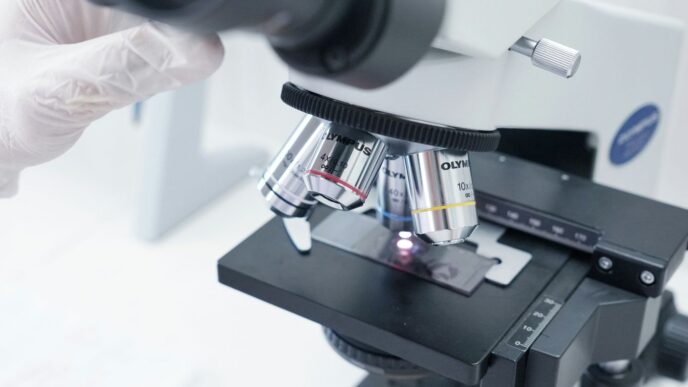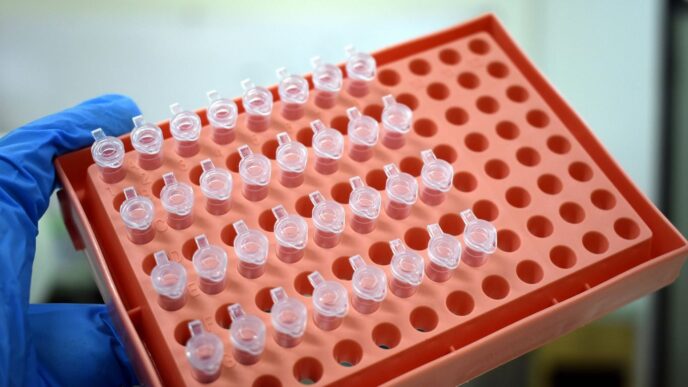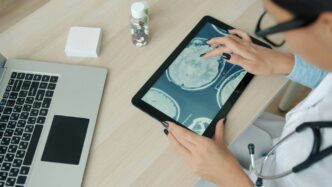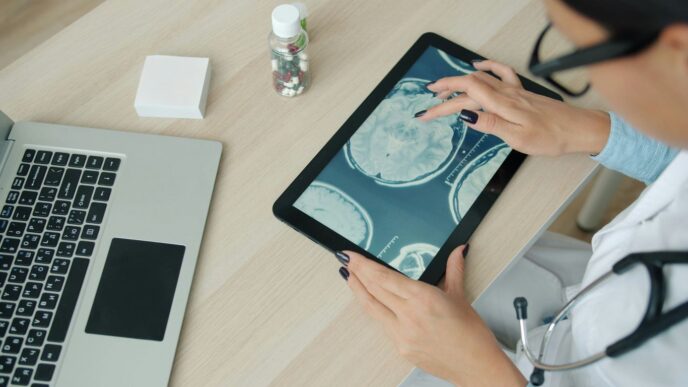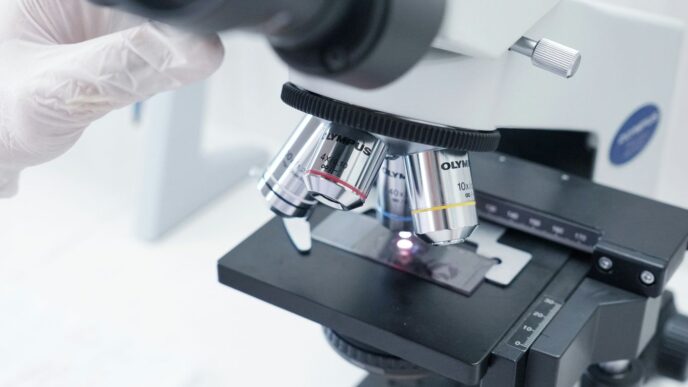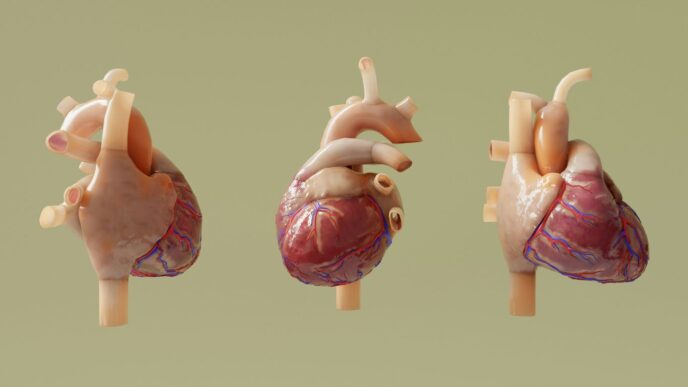It feels like there’s an app for everything these days, and that includes keeping tabs on your health. We’re talking about medical diagnosis apps, which have really started to pop up everywhere. They can help you figure out what might be going on when you’re not feeling right, or just keep track of your health in general. This article is all about exploring some of the best tools out there to help you manage your well-being. We’ll look at what makes these apps useful, what kinds of features to expect, and how to pick the one that’s best for you.
Key Takeaways
- Mobile technology is changing how we handle healthcare, giving people more direct access to health information.
- Many medical diagnosis apps use AI and machine learning to help analyze symptoms and suggest possible conditions.
- Some apps focus on specific health areas, like skin issues or women’s health, while others are more general.
- Symptom checker apps can be a good starting point for understanding health concerns, but they don’t replace a doctor’s visit.
- It’s important to choose apps that are easy to use, secure with your data, and offer clear ways to connect with healthcare providers if needed.
Understanding the Rise of Medical Diagnosis Apps
It feels like just yesterday we were carrying around bulky flip phones, and now? We’ve got supercomputers in our pockets. This shift has totally changed how we do a lot of things, and healthcare is no exception. Medical diagnosis apps are popping up everywhere, and honestly, they’re becoming pretty important tools for keeping tabs on our health. They’re not just fancy gadgets; they’re actually making a difference in how we get and give medical care.
The Transformative Role of Mobile Technology in Healthcare
Think about it. Before, if you had a weird rash or a nagging cough, you’d have to wait for an appointment, maybe even go to an urgent care. Now, you can often get some initial guidance right from your phone. These apps use smart technology, like artificial intelligence, to look at your symptoms and give you an idea of what might be going on. It’s like having a health assistant ready to go, 24/7.
- Faster Access to Information: Get preliminary health insights without leaving your home.
- Data Organization: Many apps help you keep track of your symptoms, medications, and appointments all in one place.
- Early Detection Potential: By analyzing your input, some apps can flag potential issues early on, prompting you to seek professional help sooner.
The integration of mobile technology into healthcare isn’t just about convenience; it’s about making health information more accessible and actionable for everyone. This shift is helping to bridge gaps in care and provide more timely support.
Empowering Patients with Real-Time Health Insights
These apps put a lot of power back into our hands. Instead of just being passive recipients of care, we can be more involved. You can track your own health trends, understand your body better, and have more informed conversations with your doctor. It’s about being proactive rather than just reactive when something goes wrong.
Streamlining Doctor-Patient Interactions for Better Care
It’s not just for patients, though. Doctors can use these tools too. Imagine a doctor getting a detailed report from your app before your appointment, showing your symptom history and vital signs. This can make appointments more efficient, allowing doctors to focus on diagnosis and treatment rather than just gathering basic information. It helps make sure everyone is on the same page, leading to better, more personalized care.
Key Features of Top Medical Diagnosis Apps
When you’re looking at medical diagnosis apps, a few things really stand out. These aren’t just simple checklists; they’re getting pretty sophisticated. The real power comes from how they use technology to help you and your doctor understand what’s going on.
AI-Driven Symptom Analysis and Machine Learning
This is where the magic happens. These apps use artificial intelligence to look at your symptoms. Think of it like a super-smart assistant that has read millions of medical articles and patient records. It can spot connections and patterns that a person might miss, especially when things are complicated or rare. This helps in getting a more accurate idea of what might be wrong, and it gets better over time as it learns from more data. It’s like having a constant medical researcher working for you.
- Processes lots of medical information fast.
- Finds patterns that help pinpoint issues.
- Suggests possible next steps based on the data.
The AI doesn’t replace a doctor, but it gives them a powerful tool to consider more possibilities and get to the right answer quicker.
Comprehensive Medical Databases and Drug Information
Beyond just symptoms, these apps often have huge libraries of medical knowledge. You can look up conditions, understand treatments, and get details about medications. This includes how drugs work, potential side effects, and even interactions with other medicines you might be taking. It’s a go-to resource for reliable health facts, cutting down on the need to sift through questionable websites.
| Feature Category | Details Provided |
|---|---|
| Medical Conditions | Descriptions, causes, symptoms, and outlook |
| Medications | Dosage, side effects, interactions, and warnings |
| Diagnostic Tests | Purpose, procedure, and what results mean |
Image-Based Diagnostic Support and Differential Diagnosis Tools
Some apps can even help with visual diagnoses. For example, you might be able to upload a picture of a rash or a mole. The app can analyze it and give you an idea of what it might be, or at least suggest if it’s something you should get checked out by a doctor soon. They also often provide a list of possible conditions, known as a differential diagnosis, which helps doctors think through all the potential causes of your symptoms.
Specialized Medical Diagnosis Apps for Specific Needs
Sometimes, general health apps just don’t cut it. You might have a specific health concern, or maybe you’re a healthcare professional looking for tools tailored to a particular field. That’s where specialized medical diagnosis apps come in. They’re designed to tackle niche areas, offering deeper insights and more focused support than a one-size-fits-all approach. Think of them as highly trained specialists in app form.
Dermatology Consultations On-Demand
Skin issues can be tricky. What looks like a simple rash to one person might be something else entirely to a trained eye. Dermatology apps are changing the game here. They often use image recognition technology. You snap a picture of a skin concern – a mole, a rash, a lesion – and the app analyzes it. These tools can help identify potential conditions and suggest whether you should see a dermatologist. Some apps even connect you with dermatologists for virtual consultations, which is super convenient if you don’t live near a specialist or have mobility issues.
Women’s and Family Health Digital Clinics
Women’s health has unique needs, from tracking menstrual cycles and fertility to prenatal care and menopause. Apps in this category often provide personalized tracking tools, educational resources, and even connect users with OB/GYNs or family practitioners for virtual visits. They can help manage:
- Menstrual cycle tracking and prediction
- Pregnancy monitoring and symptom logging
- Postpartum care resources
- Menopause symptom management
- Family planning advice
These apps aim to make managing women’s and family health more accessible and less intimidating, offering support throughout different life stages.
Sleep Health Monitoring and Snore Analysis
Ever wonder why you’re so tired? Your sleep might be the culprit. Sleep monitoring apps track your sleep patterns – how long you sleep, your sleep cycles (light, deep, REM), and disturbances. Many use your phone’s microphone to record sounds, including snoring. They can analyze your snoring patterns, noting frequency and loudness. This data can be really helpful for identifying potential sleep disorders like sleep apnea, which often involves loud snoring and disrupted breathing. Some apps even offer guided relaxation exercises or white noise to help you fall asleep faster.
While these specialized apps offer incredible convenience and focused support, they are not a replacement for a professional medical diagnosis. Always consult with a qualified healthcare provider for any health concerns, especially if symptoms are severe or persistent. These apps are best used as supplementary tools to aid in your health journey and discussions with your doctor.
Navigating Your Health with Symptom Checker Apps
Feeling a bit off but not sure what’s going on? That’s where symptom checker apps come in. Think of them as a helpful first step when you’re trying to figure out what might be ailing you. They’re not meant to replace a doctor, of course, but they can give you some ideas and point you in the right direction. It’s like having a knowledgeable friend who can ask you the right questions when you’re not feeling your best.
Guided Questionnaires for Initial Health Assessments
These apps work by asking you a series of questions, kind of like a doctor would during a visit. You’ll answer about your symptoms, how long you’ve had them, and other related details. The app then uses this information to suggest possible causes. It’s a structured way to think through what you’re experiencing.
Here’s a typical flow:
- Start with your main symptom: What’s bothering you the most?
- Answer follow-up questions: These might be about pain location, severity, or other accompanying feelings.
- Provide personal details: Age, sex, and existing conditions can influence potential causes.
- Review possible conditions: The app will list potential issues based on your answers.
Understanding When to Seek Professional Medical Advice
It’s super important to remember that these apps are tools, not doctors. They can’t give you a definitive diagnosis. If you’re experiencing severe pain, have trouble breathing, or notice any sudden, alarming changes in your health, don’t mess around with an app. Always prioritize immediate medical attention for serious or worsening symptoms.
Here are some signs that mean you should definitely see a doctor or go to an emergency room:
- Sudden, severe pain
- High fever that doesn’t go down
- Difficulty breathing or chest pain
- Unexplained bleeding
- Confusion or loss of consciousness
WebMD’s Symptom Checker and Medical Resources
WebMD is a name many people recognize, and their symptom checker is a popular choice. It’s built on a large database of medical information. When you use their checker, it asks detailed questions and then provides a list of possible conditions. Beyond the checker, the WebMD app also offers a wealth of other resources. You can look up information on various diseases, learn about medications, and even find healthcare providers in your area. It’s a pretty solid all-around resource for health information when you need it.
Managing Medications and Health Records

Keeping track of your medications and all your health information can feel like a full-time job sometimes. Luckily, there are apps that can really help simplify things. These tools are designed to make sure you take your pills on time and keep all your important medical documents in one accessible place. It’s like having a personal health assistant right in your pocket.
Medication Reminder and Adherence Tools
Forgetting to take your medicine, or taking it at the wrong time, can really mess with how well it works. Apps designed for medication reminders act like a virtual pillbox. You input your prescriptions, and the app sends you alerts when it’s time to take each one. Some apps even let you log when you’ve taken your dose, so you can easily see your adherence history. This is super helpful if you’re on multiple medications or have a complex schedule.
- Set personalized reminders: Schedule alerts for specific times, with options for different dosages or if you need to take medication with food.
- Track your doses: Mark when you’ve taken your medication to build a history of your adherence.
- Refill alerts: Get notified when it’s time to pick up a new prescription before you run out.
Consolidated Access to Electronic Health Records
Remembering all your doctor’s visits, test results, and past diagnoses can be tough. Apps that manage electronic health records (EHRs) pull all this information together. You can often see lab results, current medications, allergies, and past visit summaries. This makes it easier to share your full health picture with new doctors or just keep everything organized for yourself. It’s a big step towards having more control over your health information.
Having your medical history readily available can make a significant difference when you need to consult with new healthcare providers or manage chronic conditions. It reduces the chance of errors and ensures continuity of care.
Prescription Discount and Price Comparison Tools
Medications can get expensive, and prices can vary a lot between pharmacies. Apps that focus on prescription discounts and price comparisons can save you a good chunk of money. You can search for your medication and see which local pharmacies offer the best price. Many of these apps also provide digital coupons you can show at the pharmacy counter. It’s a smart way to manage healthcare costs without sacrificing quality of care.
Here’s a quick look at what these apps can do:
| Feature | Description |
|---|---|
| Price Search | Find the lowest prices for your prescriptions at nearby pharmacies. |
| Digital Coupons | Access and present coupons directly from your phone at the pharmacy. |
| Drug Information | Get details about your medications, including potential side effects. |
| Pharmacy Network | Works with thousands of pharmacies nationwide. |
| Account Creation (Optional) | Save favorite medications and track your savings over time. |
Choosing the Right Medical Diagnosis App for You
Picking the right health app can feel a bit overwhelming, right? There are so many options out there, and they all promise to help you manage your health better. But not all apps are created equal, and what works for one person might not be the best fit for another. It’s important to think about what you actually need from an app before you download it. Your health is personal, and so should be your digital health tools.
Here are a few things to consider when you’re looking for an app:
- Ease of Use: Is the app simple to figure out? Can you find what you need without a struggle? If it’s confusing, you’re less likely to use it regularly. Look for clear menus and straightforward instructions.
- What It Does: Does the app focus on what you need? Some apps are great for tracking symptoms, while others are better for managing medications or connecting with doctors. Make sure its main features match your health goals.
- Your Doctor’s Input: Have you talked to your doctor about using health apps? They might have recommendations or even specific apps they prefer for their patients. Sometimes, apps can share information directly with your doctor’s office, which is super helpful.
When you’re looking at health apps, think about how they handle your personal information. It’s really important that your data is kept safe and private. Look for apps that explain their privacy policies clearly and mention things like HIPAA compliance if they’re dealing with sensitive medical details. You want to feel confident that your health information is protected.
User-Friendly Design and Accessibility
When you first open an app, does it feel welcoming or intimidating? A good app should be easy to navigate, even if you’re not super tech-savvy. This means clear buttons, readable text, and a logical flow from one screen to the next. For people with vision impairments or other accessibility needs, features like adjustable font sizes or compatibility with screen readers are a big plus. It shouldn’t be a chore to use; it should feel natural.
Communication Methods with Healthcare Providers
Some apps are designed to be a bridge between you and your doctor. Think about whether you want an app that lets you securely message your doctor, share your health data directly, or even schedule appointments. If the app connects with your doctor’s existing systems, it can make follow-ups and communication much smoother. On the other hand, if you just want a personal health tracker, this might not be as important.
Data Security and HIPAA Compliance
This is a big one. Your health information is sensitive. Any app that stores or transmits your medical data needs to be secure. In the United States, HIPAA (Health Insurance Portability and Accountability Act) sets the rules for protecting patient health information. Apps that are HIPAA compliant have strong security measures in place, like encryption, to keep your data safe from unauthorized access. Always check the app’s privacy policy to see how they protect your information. It’s better to be safe than sorry when it comes to your personal health details.
Wrapping Up: Your Health, In Your Hands
So, we’ve looked at a bunch of apps that can really help you keep tabs on your health. From checking symptoms when you’re not feeling right, to making sure you take your meds, or even just tracking your daily steps, there’s a tool out there for almost everything. It’s pretty amazing how much technology can do these days to make managing your well-being a bit easier. Remember, these apps are great helpers, but they don’t replace talking to a real doctor. Think of them as your personal health sidekicks, ready to give you information and keep you organized. Give a few a try and see which ones fit best into your life – your health journey just got a little more tech-savvy.


